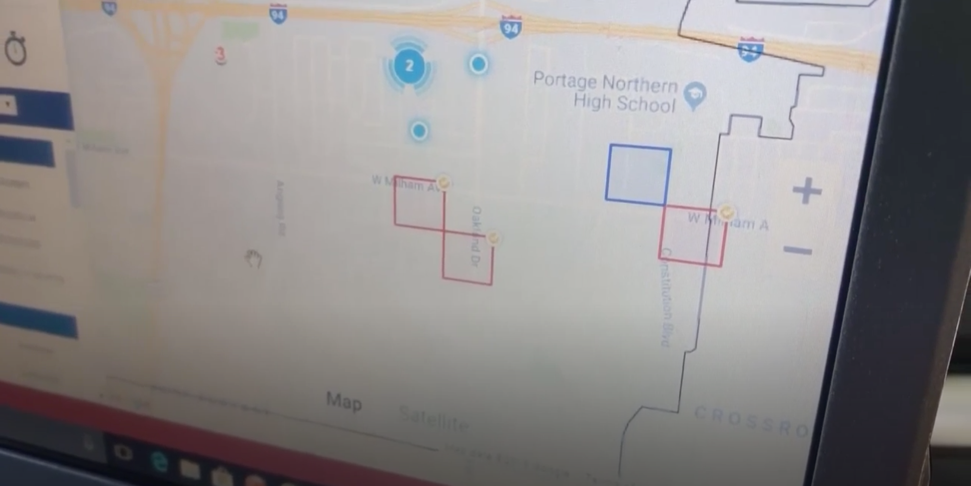The Landscape of Predictive Policing:
At the heart of the controversy lies PredPol, a predictive policing program utilized by 50 police forces across the United States. Developed in collaboration with Canadian Jeff Brantingham, an anthropology professor at UCLA, PredPol uses historical crime data to identify areas at higher risk of criminal activity. The system generates daily maps, directing police patrols to specific locations to proactively address potential crime hotspots.
Community Skepticism:
Activists, such as Jamie Garcia from the Stop LAPD Spying Coalition, argue that the data used by the LAPD is inherently flawed. They highlight concerns about implicit bias within law enforcement and question the effectiveness of predictive policing in creating fair and just outcomes. Signs at public meetings express skepticism, with phrases like “Data Driven Evidence Based Policing = Pseudoscience” and “Crime Data is Racist.”
The Role of Palantir and Data Analysis:
The LAPD’s partnership with Palantir, a data analysis firm, adds another layer to the controversy. Critics argue that the reliance on such technologies raises questions about privacy, civil liberties, and the potential for biased decision-making. The use of predictive algorithms to guide policing activities has intensified the ongoing struggle with implicit bias within the LAPD.
Challenges in Implementation:
While proponents of predictive policing, such as Deputy Chief Sean Malinowski, emphasize its potential to allocate resources more efficiently, challenges persist. Captain Jeff Nolte acknowledges the cultural shift within the LAPD, where officers accustomed to traditional methods may find it challenging to embrace algorithm-driven approaches. Questions about the effectiveness of these systems and their impact on reducing crime rates linger.
Person-Based Predictive Policing – LASER:
Beyond PredPol, the LAPD employs the Los Angeles Strategic Extraction and Restoration (LASER) program, which focuses on individual risk assessment. LASER generates a list of “chronic offenders” based on various criteria, including gang affiliation and prior police encounters. Critics equate this approach to profiling, raising concerns about the potential for discriminatory practices.
The Need for Oversight and Accountability:
The controversy surrounding predictive policing underscores the need for oversight and accountability. While LAPD Chief Michel Moore acknowledges the imperfections in the data used, activists call for a comprehensive review of these systems. As the use of predictive policing spreads to other cities, including Chicago, New York City, and Philadelphia, the debate over balancing crime prevention with civil liberties intensifies.
Conclusion:
Predictive policing presents a complex and multifaceted challenge, with advocates emphasizing its potential to enhance public safety and critics expressing concerns about privacy, bias, and accountability. As the LAPD grapples with the integration of data-driven approaches into its law enforcement strategies, the debate serves as a microcosm of the broader issues surrounding the intersection of technology, policing, and community trust in the 21st century.

